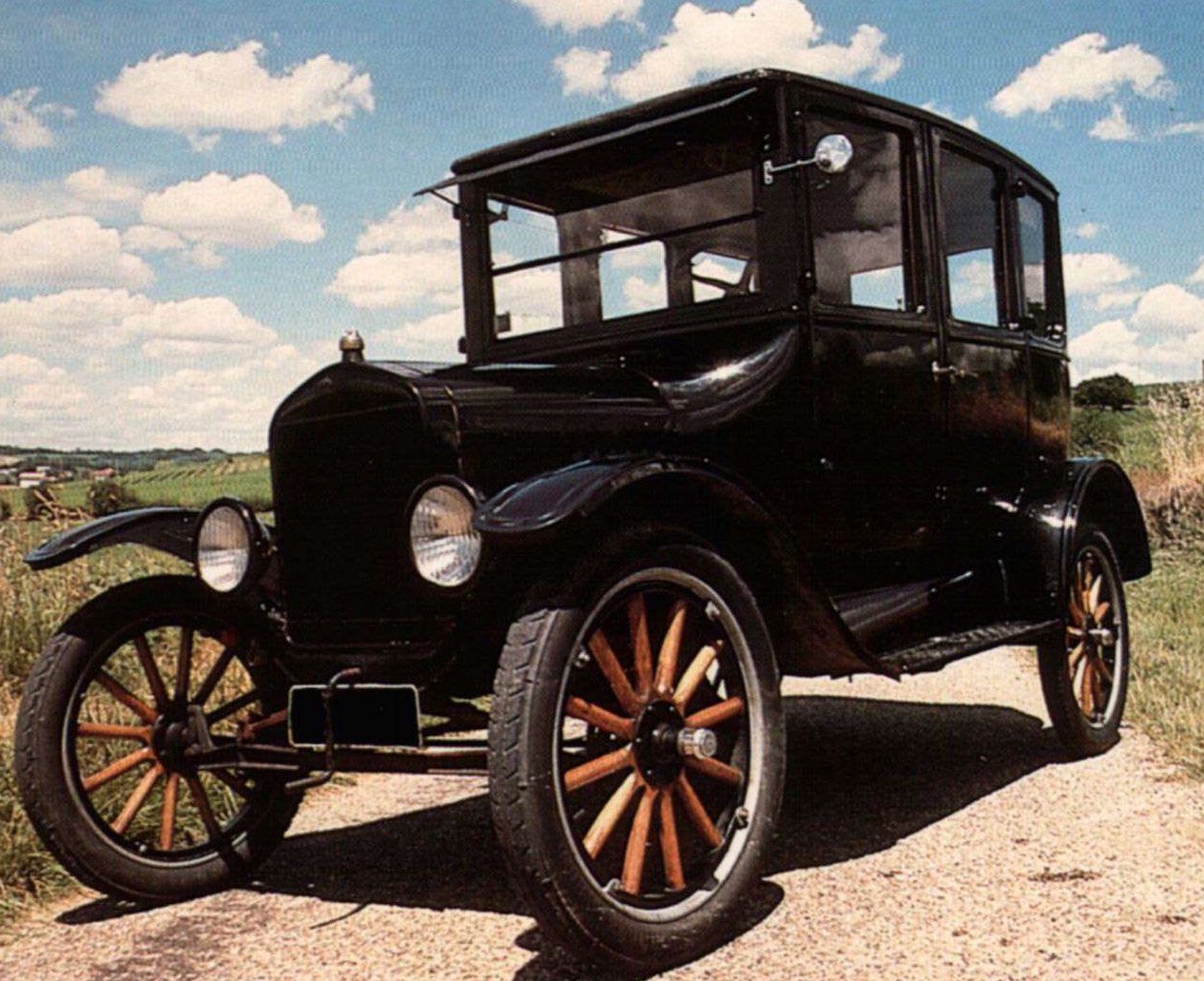
History of the automobile begins as early as 1769, with the creation of steam engined automobiles capable of human transport.[1]:14 In 1807, François Isaac de Rivaz designed the first car powered by an internal combustion engine running on fuel gas (hydrogen and oxygen), which -- although not in itself successful -- led to the introduction of the ubiquitous modern gasoline- or petrol-fueled internal combustion engine in 1885.

The World Before Cars
The years before 1885 were The Bad Old Days, if you're a fan of four-wheeled, self-propelled transportation. To get anywhere you walked or rode a horse, perched on a tippy bicycle
A Car Is Born
Karl Benz is considered to have built and patented the first proper automobile
Cars For The Masses
By the beginning of the 20th century, the automobile was changing the landscape of cities and cultures around the world. With their Oldsmobile and Model T machines, Ransom Olds and Henry Ford made the car a ubiquitous part of American life.
Cars Get Rich, Quick
In the pre-war era, cars became ordinary, unless you were wealthy. Transportation was no longer the luxury--the car itself was, and coachbuilt art objects from Duesenberg, Cadillac, and Bugatti competed for the attention of the super-rich, until everything and everyone ran headlong into the Great Depression.
Cars Go To War
World War II reconfigured the auto industry, shaking out minor players and turning the major companies into manufacturers for the military for a time. The symbol of the era was the Jeep, the go-anywhere machine that came home from war with its rugged image intact, making it a grandfather of today's SUVs.
More Cars For The Masses
As the world pulled out of the post-war era, cars flourished with fantastic Jet Age designs that gave way to a new generation of compact cars heavily influenced by the VW Beetle, Germany's "people's car." The Beetle made small cars relevant in America--and without it, there would be no Corolla, no Civic, no Focus.
Musclecar Mania
The prosperity of the Sixties brought with it ever more powerful cars with one mission in mind: go faster. The modern sportscar era may be best known for the best-selling Ford Mustang personal-luxury car, but the other indelible names of the era were even faster, even better: Camaro, Barracuda, E-Type, 911.
Oil Shocks And Family Wagons
The car world nearly imploded in the 1970s, when new safety and emissions coincided with global oil shortages. The rocky road through the decade led to downsized cars with smaller-displacement engines, and the venerable station wagon was discarded as a new kind of family wagon--the minivan--emerged in the early 1980s.
The SUV Takes Over The Suburbs
The SUV really was invented in the 1930s with the first four-wheel-drive Chevy Suburban wagon, but it came into its own in the 1990s with the launch of the Ford Explorer and the Jeep Grand Cherokee
Trucks Take The Lead
As the SUV replaced the wagon, the pickup truck also became an alternative to the car. Trucks dominated the sales charts in the first decade of this century. Already the best-selling vehicle in America for decades, the Ford F-150
Cars Go Green
At the same time, greener vehicles were gaining fans, thanks to rising gas prices. The Toyota Prius became the first mass-production hybrid car in 1998 (in 2001 in the U.S.). The gas-electric Prius turned out to be not so much a car as a movement--and for some, a South Park punchline.
Cars Of The Future
Forget flying cars--the cars of the future are going to look a lot like the cars of today, with more efficient gas-powered engines leading the way. But battery-powered electric cars are now a mass-market reality, in the form of the Nissan Leaf and the Tesla Model S, and automakers like Toyota are promising hydrogen fuel-cell-powered cars will be on the roads in just a few years.
source: thecarconnection.com





Nothing wrong if I say that you are really a wonderful writer. You always raise the social causes in your article which is respectful and admirable for me as an individual. Equipment Leasing Solutions.
ReplyDelete